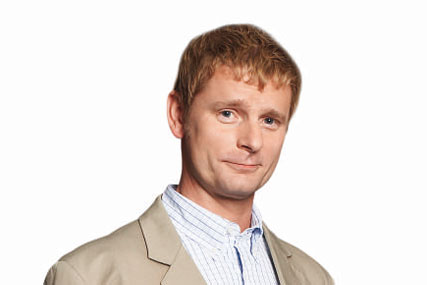There was a time when selecting a media agency was easy. A beauty parade would be held, exciting ideas (which nobody expected to run) would be presented, then procurement would get involved. After the blood was cleared up, we'd all get on with it until head office handed down a global review.
Mostly, the choice was driven by price, affinity and personal relationships; but, beyond this, the product itself was difficult to differentiate. Everyone had gorillas with calculators, planners and suits; everyone had share deals and trading models that, despite their protests, looked remarkably similar. So although there were plenty of agencies, the choice was limited.
Now, the market is much more complex; and again it's the internet behind much of that change, not just in digital media, but in offline, too.
The web boom gave a raft of new media agencies an opportunity to compete with traditional players. Yet the growth of digital marketing was reliant on technology to do the heavy lifting: serving ads, tracking responses, managing search keywords, optimising across channels. Some of the tech providers started to work directly with advertisers - initially in the US, where agencies have a lower share of the ad business, and subsequently in the UK.
Search Ignite, a technology for optimising search deployment, bills itself as 'a search, display and social media management service for marketers'. Efficient Frontier, initially another tech platform, morphed into a search agency and subsequently also developed into social and display. Both are now effectively technology-based media agencies in the online space, which also license their machinery to other agencies, and balance on a day-to-day basis the conflict that presents.
Media sales networks have also got in on the act. Tribal Fusion is 'a complete, end-to-end platform with which to plan, serve, optimise and analyse campaigns'. Valueclick is 'one of the world's largest integrated online marketing companies'. Both work directly with some advertisers.
The biggest of them all, Google, has often struggled to hide its disdain for agencies. About half of its search product in the US is bought directly by advertisers, and the Doubleclick Media Exchange significantly extends the capability of advertisers themselves to buy online media campaigns, handling and automating much of the admin. While Google has become more agency-friendly in recent years, much of the organisation doesn't really believe they're necessary.
While these businesses attack the bottom end of the agency model, management consultancies, like McKinsey, are working the top end. Its marketing and sales practice covers brand strategy and budget optimisation, and is pushing into social-media management in a joint venture with Nielsen. Similarly, Accenture has its Marketing Sciences business, based on analytics.
Administration is the lowest-value product agencies offer, but it's where most of the fees go. It's also something they're not too good at: hence the rapid penetration of alternative models into online, where much can be automated.
Now this practice is coming to outdoor in the UK, as all 250,000 panels surrounding the London Olympics will be traded via the online MediaEquals platform. Bringing 35 media owners under one roof, it will cut a swathe through the admin cost of advertising around the event as both agencies and advertisers plan and buy space online.
Across the media world, the gorillas are packing away their calculators and agencies are re-forming to suit this less hand-cranked world, a strategy-driven one where clout means less than data.
The challenge now is for marketing and procurement to move away from blood-on-the-carpet negotiating to a relationship that reflects this; the days of the beauty parade are numbered.
- Andrew Walmsley is a digital pluralist
30 SECONDS ON ... OUTDOOR ADVERTISING AT THE LONDON 2012 OLYMPICS
- In December, LOCOG awarded MediaEquals the tender to create the online marketplace for advertisers wanting to buy outdoor sites during the Games following a competitive pitch.
- Under the terms of the Olympic Games, all outdoor media owners must agree to offer their inventory to official sponsors first.
- Premium outdoor space for the 12 weeks from 25 June 2012 will be made available to sponsors via MediaEquals in April and May this year.
- Sites in the immediate vicinity of Olympic venues will be offered to the highest-bidding global and tier-one sponsors first; any unsold will be offered to the highest bidders from tiers two or three.
- Spectacular sites such as those on the M4 will similarly be auctioned to global and tier-one sponsors, followed by tiers two and three, and only then the wider market.
- London 2012 global partners include McDonald's and Visa; tier-one domestic partners include Adidas and BT. Sainsbury's is official partner of the Paralympic Games.


